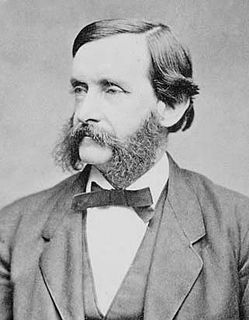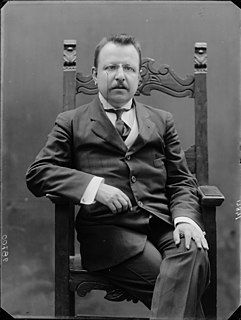A Quote by Norman Davies
Each side tries to legitimize their aims by appealing to history, sometimes selectively choosing episodes and other times just by inventing history.
Related Quotes
All... religions show the same disparity between belief and practice, and each is safe till it tries to exclude the rest. Test each sect by its best or its worst as you will, by its high-water mark of virtue or its low-water mark of vice. But falsehood begins when you measure the ebb of any other religion against the flood-tide of your own. There is a noble and a base side to every history.
Let me make it clear that I do not assert that a President and the Congress must on all points agree with each other at all times. Many times in history there has been complete disagreement between the two branches of the Government, and in these disagreements sometimes the Congress has won and sometimes the President has won. But during the Administration of the present President we have had neither agreement nor a clear-cut battle.
I have to throw in on a personal note that I didn't like history when I was in high school. I didn't study history when I was in college, none at all, and only started to do graduate study when my children were going to graduate school. What first intrigued me was this desire to understand my family and put it in the context of American history. That makes history so appealing and so central to what I am trying to do.
In 1980 we declared the globe free of smallpox. It was the largest campaign in United Nations history until the Iraq war. A hundred and fifty thousand people from all over the world, doctors of every race, religion, culture and nation, who fought side by side, brothers and sisters, with each other, not against each other, in a common cause to make the world better.
For any exam in history, here is the answer: all human history is the struggle between systems that attempt to shackle the human personality in the name of some intangible good on the one hand and systems that enable and expand the scope of human personality in the pursuit of extremely tangible aims. The American system is the most successful in the world because it harmonizes best with the aims and longings of human personality while allowing the best protection to other personalities.
I've benefited greatly from studying many effective people from history. Among those who've influenced me the most are Ronald Reagan, Theodore Roosevelt, and Winston Churchill. Each of the three altered history; each was self-created to a great extent; and each was a great student of history and leadership.
The history of mankind is a history of the subjugation and exploitation of a great majority of people by an elite few by what has been appropriately termed the 'ruling class'. The ruling class has many manifestations. It can take the form of a religious orthodoxy, a monarchy, a dictatorship of the proletariat, outright fascism, or, in the case of the United States, corporate statism. In each instance the ruling class relies on academics, scholars and 'experts' to legitimize and provide moral authority for its hegemony over the masses.







































